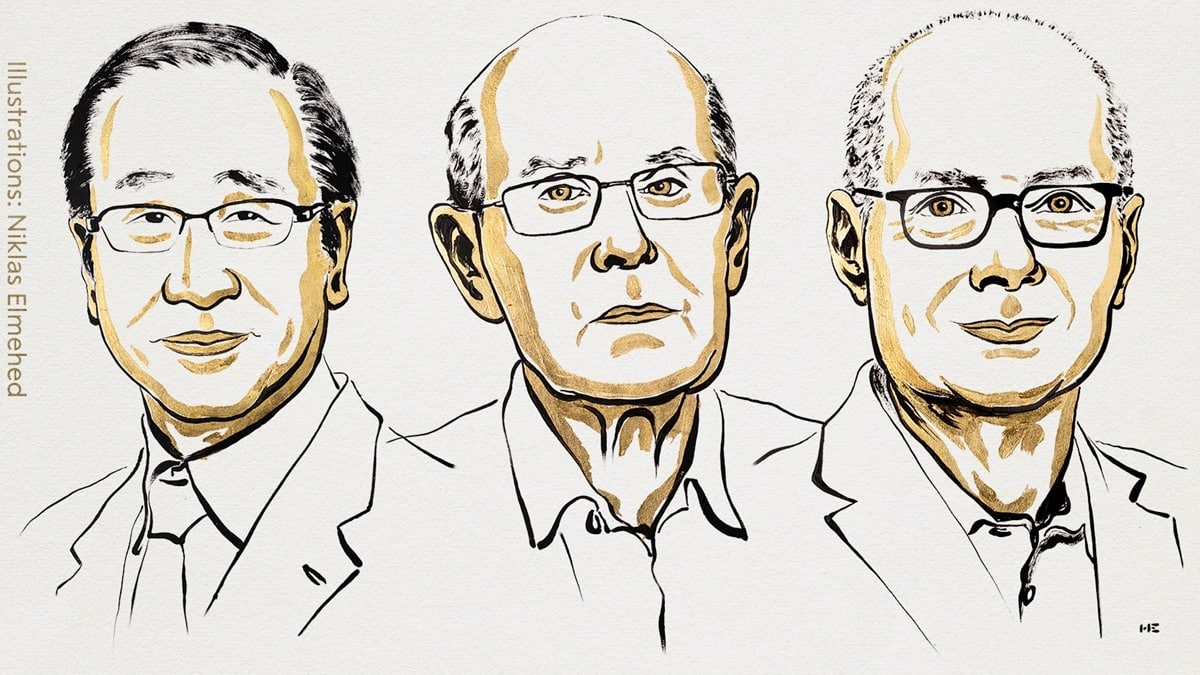Nobel Prize in Chemistry 2025: Three get award for developing metal-organic frameworks
Vagisha Kaushik | October 9, 2025 | 11:44 AM IST | 2 mins read
Chemistry Nobel Prize 2025: Susumu Kitagawa, Richard Robson and Omar M Yaghi received the award.

This year’s Chemistry Nobel Prize 2025 has been awarded to Susumu Kitagawa, Richard Robson and Omar M Yaghi for developing a new type of molecular architecture.
“The Nobel Prize laureates have been awarded the chemistry prize for the development of a new type of molecular architecture. The constructions they created – metal–organic frameworks – contain large cavities in which molecules can flow in and out. Researchers have used them to harvest water from desert air, extract pollutants from water, capture carbon dioxide and store hydrogen,” the Nobel Prize’s official X page said.
Following the laureates’ groundbreaking discoveries, researchers have created numerous different and functional metal–organic frameworks (MOF). So far, in most cases, the materials have only been used on a small scale. To harness the benefits of MOF materials for humanity, many companies are now investing in their mass production and commercialisation. Some have succeeded.
Also read Nobel Prize in Physics 2025: John Clarke, Michel H Devoret, John M Martinis get award
For example, the electronics industry can now use MOF materials to contain some of the toxic gases required to produce semiconductors. Another MOF can instead break down harmful gases, including some that can be used as chemical weapons. Numerous companies are also testing materials that can capture carbon dioxide from factories and power stations, to reduce greenhouse gas emissions.
Chemistry Nobel Prize 2025
Explaining the process, Robson tested utilising the inherent properties of atoms in a new way. He combined positively charged copper ions with a four-armed molecule; this had a chemical group that was attracted to copper ions at the end of each arm. When they were combined, they bonded to form a well-ordered, spacious crystal. It was like a diamond filled with innumerable cavities.
Also read Nobel Prize in Medicine 2025 goes to Mary E Brunkow, Fred Ramsdell, Shimon Sakaguchi
Kitagawa showed that gases can flow in and out of the constructions and predicted that metal–organic frameworks (MOF) could be made flexible. Yaghi created a very stable MOF and showed that it can be modified using rational design, giving it new and desirable properties.
The academy said that only two people have been awarded the Nobel Prize in Chemistry twice so far – Frederick Sanger and Barry Sharpless.
Follow us for the latest education news on colleges and universities, admission, courses, exams, research, education policies, study abroad and more..
To get in touch, write to us at news@careers360.com.
Next Story
]Meet the small-town college teachers in Stanford University’s list of top 2% scientists in the world
Stanford University’s list of top scientists features sons of daily-wagers and farmers, now teaching in colleges in Pulwama, Nagpur, Solapur and Rasipuram. This is how they got into the top 2%
Musab Qazi